Ever wondered why we talk about paying through a body part that has nothing to do with money?
To pay an excessively high price for something; to be charged much more than expected or is reasonable.
Learning English idioms can feel like solving a puzzle, especially when they make little sense literally. “Pay through the nose” is one such phrase that confuses many learners at first glance.

This colorful expression has nothing to do with nasal transactions but instead describes the pain of paying an exorbitant sum for something.
Whether it’s last-minute concert tickets or luxury items, this idiom perfectly captures that feeling of financial shock.
In this guide, we’ll explore its meaning, origins, and practical usage to help you confidently add this expression to your English vocabulary.
What Does This Idiom Mean?
When someone says they had to “pay through the nose,” they are expressing that they spent a lot of money on something. It’s a vivid way to emphasize how steep a price felt or how unexpectedly high the cost turned out to be.
The idiom can apply to various scenarios, from buying last-minute concert tickets to splurging on a luxury item. It conveys frustration and surprise at just how much money was handed over.
Note on the Origin
There is a common story that links the origin of this expression to a punishing practice in Ireland, where those who evaded taxes allegedly had their noses slit.
However, linguistic historians debate this, and there is no conclusive evidence to confirm that nose-slitting truly explains the phrase’s emergence.
Some scholars suggest alternate possibilities, such as early English or French roots that evolved over time. Thus, the exact origin remains uncertain, but the meaning of overpaying is firmly established in modern usage.
Everyday Use & Examples
Idioms shine when you see how they fit into real-life contexts. Below are some practical ways you might hear “pay through the nose” used in everyday conversations.
- Concert Tickets
“I tried to get last-minute passes to that sold-out concert, but I had to pay through the nose.”
This highlights how the urgency led to inflated ticket prices. - Designer Handbag
“She bought a luxury purse and definitely paid through the nose for it.”
This suggests a hefty price that might be considered over the top. - High-End Electronics
“He paid through the nose for the latest smartphone but swears it’s worth every penny.”
The emphasis is on the device’s excessive cost compared to standard models. - Airfare During Peak Season
“I booked my flight just before the holidays and had to pay through the nose.”
Demand during busy travel periods can drive prices to extraordinary levels.



Each scenario illustrates situations where one ends up spending more than expected, highlighting the idiom’s essence.
Whether it’s an impulsive purchase or a timing issue, “pay through the nose” communicates a feeling of financial sting.
Memory Tricks
Remembering idioms can be challenging, but humor and imagination make the process smoother. Below are some simple strategies to help you lock this phrase into memory.
- Visualize the Nose
Picture someone literally handing over money while pinching their nose in disbelief. This goofy mental image can leave a lasting impression. - Create a Mini-Story
Imagine you walked into a store expecting a bargain but left with a near-empty wallet, saying, “Wow, I definitely paid through the nose!” Crafting a small narrative like this helps contextualize the phrase. - Use a Funny Rhyme
Some people enjoy turning idioms into catchy jingles or rhymes. A quick rhyme could be, “No one knows how it goes, but if it’s pricey, you’ll pay through the nose!”
A personal mishap can also be a fun learning tool. Once, I mixed up the phrase and blurted out “pay through the ears,” which led to good-natured laughter and a deeper imprint of the correct idiom in my mind.
Story Highlighting the Idiom
Sometimes a quick anecdote can illustrate how an idiom comes to life. Meet John, who desperately wanted a brand-new car but had limited funds.
He took out a loan with sky-high interest rates because he couldn’t wait any longer. In the end, he wound up paying through the nose just to keep up with those daunting monthly bills.
Later, when a friend joked about whether the bank accepted nose flutes instead of currency, the situation became hilariously memorable.
John then realized he had learned a valuable lesson about impatience, all while giving us a perfect example of overpaying.
Stories like this show how a seemingly odd expression can capture universal financial woes. Whether it’s a hasty decision, an outrageous cost, or just bad timing, “pay through the nose” sums up the pain of excessive spending.
Cross-Cultural Perspectives
It’s fascinating to discover that idioms about high costs exist in multiple languages. Some languages have near-identical phrases, proving that the frustration of overspending is universal.
- Swedish: “Betala genom näsan.”
This directly translates to “pay through the nose,” suggesting a shared sense of humorous exaggeration. - Dutch: “Betalen door de neus.”
Again, the phrase parallels the English expression by highlighting extreme payment. - German: “Durch die Nase bezahlen.”
The literal translation is virtually the same, echoing the idea of paying too much.
Such similarities demonstrate how different cultures can converge on the same imaginative way to describe financial strain. Even though the words differ slightly, the sentiment remains familiar to all who have faced a hefty bill.
Similar & Opposite
Idioms related to money often share thematic connections. Here are some parallel and contrasting expressions to round out your vocabulary.
Similar Idioms
- Cost an arm and a leg
This phrase paints a comedic image of sacrificing limbs to afford something.
It’s another dramatic way to say you spent a fortune. - Break the bank
This suggests you’ve emptied your finances for a purchase.
It implies that the cost took a heavy toll on your wallet. - Pay top dollar
This idiom indicates paying the highest possible price.
It often applies to prestigious events or luxury items.
Opposite Idioms
- Get a steal
This highlights purchasing something for a surprisingly low price. It’s the polar opposite of overpaying. - A bargain
This suggests an incredible deal, making you feel lucky rather than shortchanged. The focus is on saving money instead of losing it.
Related Idioms
While “pay through the nose” focuses on spending too much, other idioms reveal different approaches to money. You might hear them in casual conversations when discussing tight budgets or thrifty lifestyles.
- Cut corners
This refers to doing something cheaply or quickly, often at the expense of quality.
It can be a cautionary tale about going too far to save money. - Penny-pinching
This means being exceptionally careful with money, sometimes to a fault.
It can describe someone who monitors every expense and hunts for the tiniest deals. - Tight-fisted
This suggests a reluctance to spend money.
Friends might humorously tease someone for being tight-fisted if they refuse to pay for small comforts.
Such idioms depict various financial behaviors, from spending lavishly to scrimping diligently. Recognizing them helps you navigate conversations that span the full spectrum of money matters.
Rewriting & Rephrasing
To ensure clarity, it helps to see how “pay through the nose” might be rephrased. Below are examples that maintain the same message but in different wording.
- Original: “I had to pay through the nose for that vacation.”
- Rephrased: “I spent a fortune on that trip.”
- Alternative Idiom: “I practically paid an arm and a leg for that getaway.”
All three convey the sense of a high price. Choosing which to use depends on your personal style and context.
Real-Life Applications
Some people do not mind paying a lot if the outcome is truly rewarding. Imagine booking an expensive flight to a dream destination where every moment feels priceless.
In such a case, you might say you “paid through the nose,” yet it was completely worth it. Sometimes, the idiom can carry a slightly comical tone, implying mild regret mixed with acceptance.
Other moments involve unplanned expenses that sting but end up being memorable. Think of scoring front-row seats at an unforgettable sports event, even though the ticket price made your heart skip a beat.
Pop Quiz: Check Your Idiom Skills
Pay Through the Nose
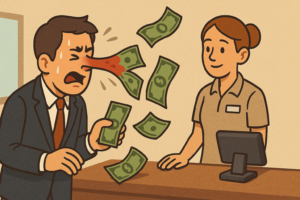
Conclusion
“Pay through the nose” is a vivid idiom used to express the frustration of spending too much money.
Though its origin is unclear, it clearly means something was very expensive—whether it’s a pricey meal, impulse buy, or urgent trip.



Learning similar phrases and memory tricks can help you use it naturally in conversation.
Finally, don’t hesitate to share your own stories of times you felt like you had to “pay through the nose.”
Leave a comment or bookmark this post if you’ve found it helpful, and continue exploring other idioms that add flair to your English conversations.

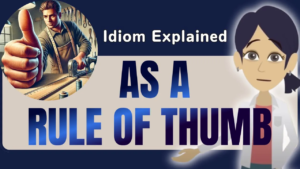

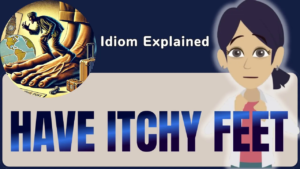
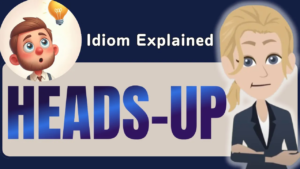
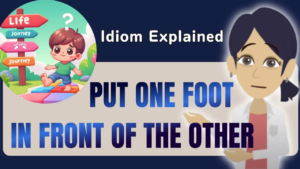
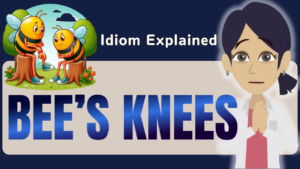
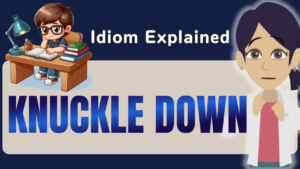
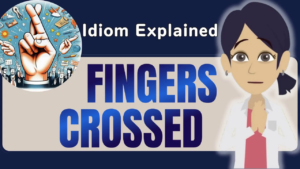
Comment